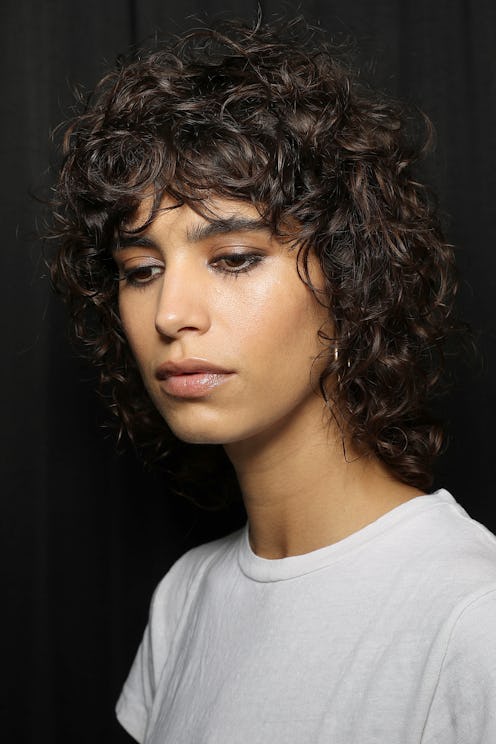(Beauty)
The Difference Between Face Oils & Face Serums Is This

Let's be honest: Skin care can be confusing. If you were to open your beauty cabinet and look through the dozens of products sitting on the shelves, would you know exactly when you're supposed to use each? Rest assured, you wouldn't be the only one to answer no. For instance, you might not be 100% sure when to apply a face oil vs. a face serum. Fortunately, once you know the difference between the two must-haves, your complexion will look better than ever.
While both are great for the skin, Dr. Orit Markowitz, a dermatologist in New York City, says face oils and face serums are indicated for different things. "First, face oils come in many different forms, like tea tree oil, safflower oil, and primrose oil, and most of these have anti-inflammatory properties," she says. And face oils give your skin a gorgeous glow when worn alone and under your makeup.
Dr. Corey L. Hartman, MD, FAAD, a dermatologist in Birmingham, Alabama, explains that a facial oil is an emollient moisturizer that helps to seal hydration and moisture into the skin to avoid dehydration and dryness. Though you can use a face oil anytime of the year, Dr. Naissan O. Wesley, an aesthetic and surgical dermatologist in Beverly Hills, says during the winter months when your skin tends to be more dry, a face oil can feel soothing and help to relieve flaky skin. But even though they are hydrating, Dr. Makowitz doesn't recommend using a face oil as a substitute to moisturizer.
Face serums, on the other hand, often contain an array of active ingredients that have specific jobs. "They are also made up of tiny molecules that can penetrate the skin to reach their target location," Natalie Aguilar, a celebrity aesthetician and dermatological nurse, tells TZR. For instance, she says ascorbic acid (vitamin C) is a popular ingredient found in serums. "Its job is to brighten skin tone, lighten discoloration, stimulate collagen, and destroy free radicals." Aside from vitamin C serums, there are other popular active ingredients like glycolic acid and retinol. To reduce the appearance of sun damage, consider a resurfacing serum with AHAs. And to smooth fine lines and wrinkles, a retinol serum is a godsend.
Overall, because serums are absorbed by the skin, Dr. Markowitz says they tend to be more drying than oils. "Serums are thin vehicles with preservatives, so they are less moisturizing than an oil or moisturizer," she explains. "Serum are available in many different formats ingredients and some contain peel-like preservative, like alpha-hydroxy, that can dry the skin." Because of this, she doesn't suggest serums for those with dry skin.
Good news: you don't have to choose one over the other. Dr. Hartman ensures it's OK to use both an oil and a serum in your skin care regimen. "Many antioxidants come as serums and are paired well with oils for those people that are prone to dryness, irritation, and lack of hydration," he says. "Patients with easily irritated skin or who suffer with eczema may find it advantageous to apply both a serum and an oil because they require extra moisture."
Not sure which one to apply first? "A good rule of thumb for skin care to is layer from the thinnest to the thickest product," Emma Lewisham, founder of New Zealand skin care brand Emma Lewisham, tells TZR. "So if you’ve got a light oil, you’d use this first, followed by the serum." Additionally, in Dr. Wesley's skin care routine, the dermatologist will use a face oil in the morning after she cleanses her face. Afterwards, she applies a calming face serum.
Now that you're an expert on the difference between the two, shop both products below. And be prepared for ultra-glowy skin.
We only include products that have been independently selected by TZR's editorial team. However, we may receive a portion of sales if you purchase a product through a link in this article.
Shop Face Oils
Shop Face Serums
This article was originally published on